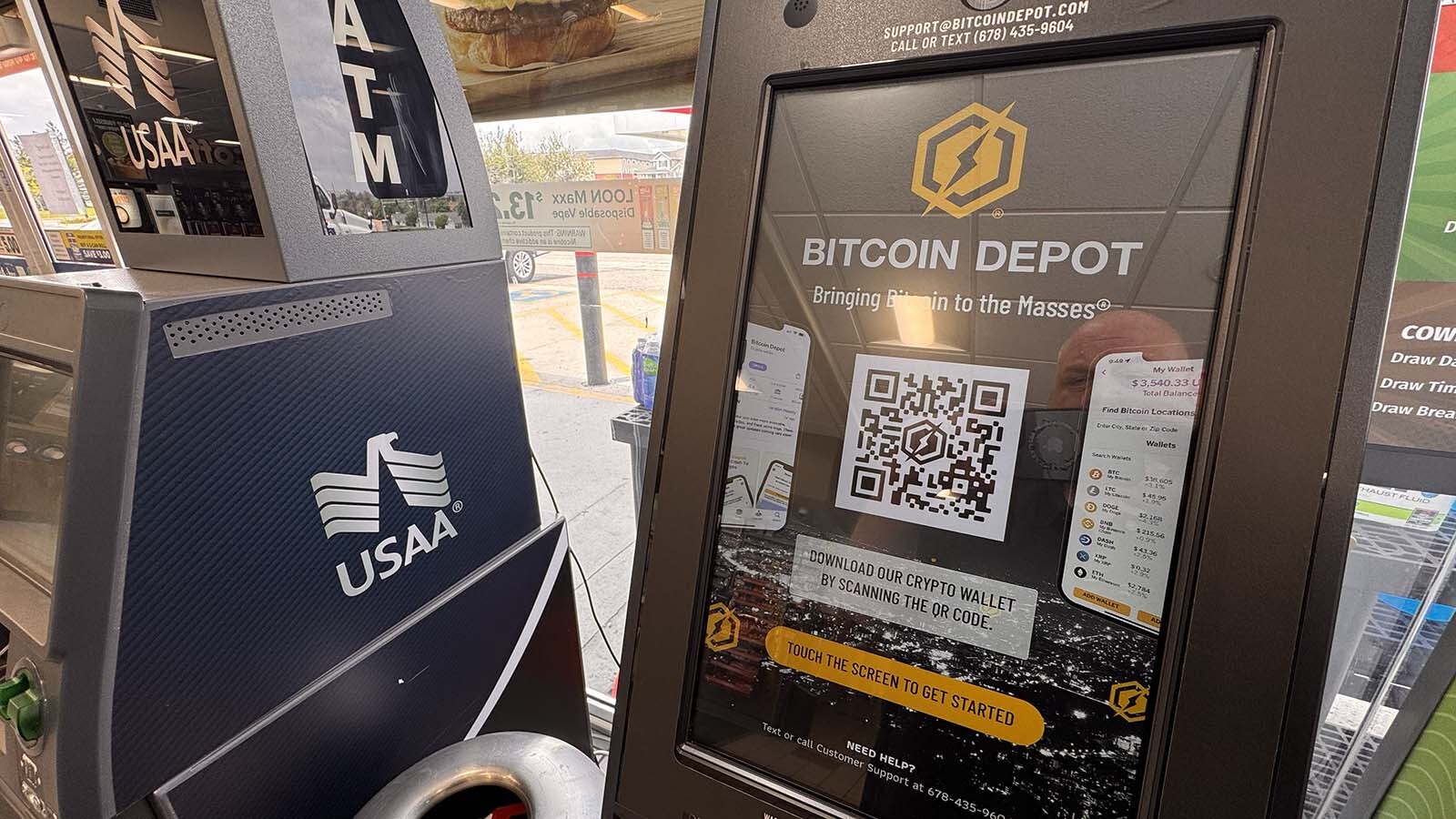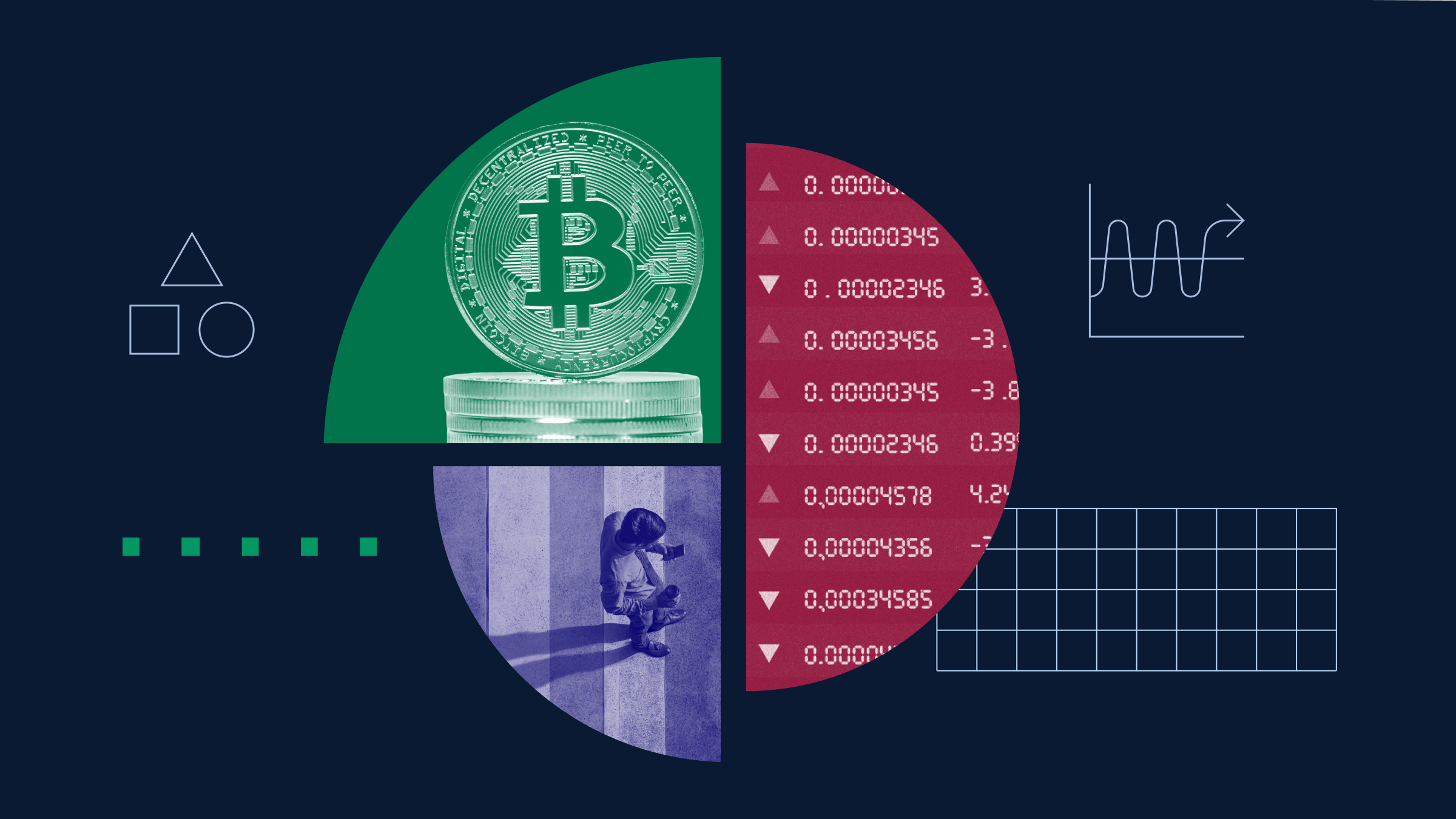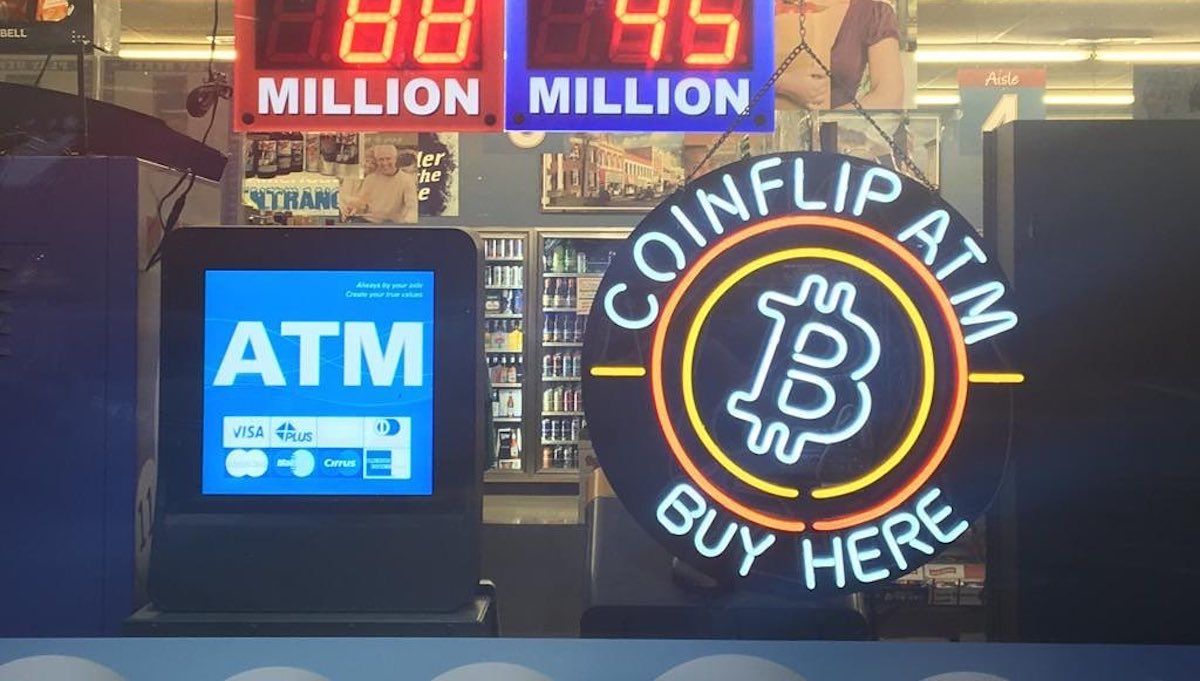Scammers Using Bitcoin ATMs To Steal Thousands From Wyomingites
A Jackson man scammed out of $7,500 wasn’t as lucky as a 78-year-old Gillette woman at a local convenience store on Saturday who narrowly avoided being taken for $22,000 at a bitcoin ATM.
The man, 51, was at least the second person known to be scammed at the Bitcoin Depot ATM at a Loaf ’N Jug store in Jackson, the Jackson Hole News & Guide reports. A woman was scammed out of $18,000 in March.
In the case of the Gillette woman, she was stopped by a young man from depositing the large amount of cash into a Bitcoin Depot ATM at a local convenience store, the Gillette News Record reports.
Like a traditional ATM connected to a bank, a bitcoin ATMs are legal and allow people to buy and sell cryptocurrencies. They can use credit or debit cards to buy and sell bitcoin, and also can deposit cash into the machine to buy digital currencies, then save it to their own account or send to someone else.
As more bitcoin ATM devices pop up around the state, people who want to scam others of their money are going to use them more, said Cheyenne Police Chief Mark Francisco.
“I haven’t heard of us having any issues here (in Cheyenne) of people reporting any type of that scam here,” he told Cowboy State Daily on Wednesday. “But if it’s happening somewhere else, it’s only a matter of time.”
Bitcoin Depot reports that it has nearly 18,000 of its ATM-like machines around the United States, Australia and Canada. Of those, 45 are in Wyoming, including one each in Jackson and Gillette, while Cheyenne has the most with 11.
After learning of the second confirmed Jackson scam at a bitcoin ATM, Francisco said his department is “going to review” that right away.
Calls to the Teton County Sheriff’s Office and Gillette Police Department for more information about their respective incidents were not returned by publication time.
It’s Basically Cash
That bitcoin ATMs would become tools for scammers doesn’t surprise David Pope, a Cheyenne accountant who serves on the Wyoming Select Committee on Blockchain and the Wyoming Stable Token Commission.
“It’s the same group of scams or types of scams, but it’s a new form of payment that they’re requesting,” he said. “The goal of all these scams is to receive money in ways that it’s more difficult to trace or to reverse.”
That bitcoin is basically like cash, that makes it an attractive currency for scammers, he said.
The scam usually begins with a phone call or text message claiming to be a representative of Apple, Microsoft, the IRS or some other giant company or agency most people deal with. Other times, the scammer tries to scare people by saying they have a warrant for their arrest and will land in jail unless they send money.
Those are all huge red flags, Francisco said, adding they usually target older people who aren’t as tech savvy as younger generations.
“The elderly are a prime demographic in these types of scams because they’re just not technical,” he said.
Also, companies, police or the courts “will not call you for a password, banks won’t call you for a password,” he said.
And they never will instruct anyone to buy bitcoin or cryptocurrency at a random ATM and send it to people, the chief said.

Cleaning Out Your Wallet
The main worry people had about being robbed decades ago was a pickpocket lifting a wallet and cleaning it out.
What’s happening with these bitcoin ATM scams is basically the same thing, Pope said.
“It used to be someone pretending to be the IRS and they wanted your credit card number,” he said. “But now the credit card companies are more aware and (vigilant) in letting those go through,” he said.
But bitcoin is basically digital cash, which means it’s easy to transfer and nearly impossible to recover.
“Bitcoin and other cryptocurrencies at their heart are just like cash in your wallet,” Pope said. “If you lose the cash in your wallet, you most times won’t recover it. That’s what cryptocurrencies are so you have to treat it and secure it like you would cash.”
In the case of these Jackson and Gillette scams, people are directed to deposit cash into the machines, which is converted into bitcoin and then put into someone else’s wallet.
“The common thing people say about cryptocurrencies is they’re used for terrorist financing and drug financing,” Pope said. “But if you look at the statistics, the most common currency in terrorist financing across the world is the U.S. dollar in cash.”
Evolving
The evolution and sophistication of digital scams makes them more difficult to detect, Francisco said.
Phone calls, texts and emails from scammers come from what may seem like legitimate numbers with Wyoming area codes and prefixes. The best defense is to trust your gut, the chief said.
“If it involves something of a sensitive nature or something that’s too good to be true,” it probably is, Francisco said. “Everything new that comes along, there’s always someone out there trying to take the easy way and just scam people.”
Greg Johnson can be reached at
Content Original Link:
" target="_blank">













































